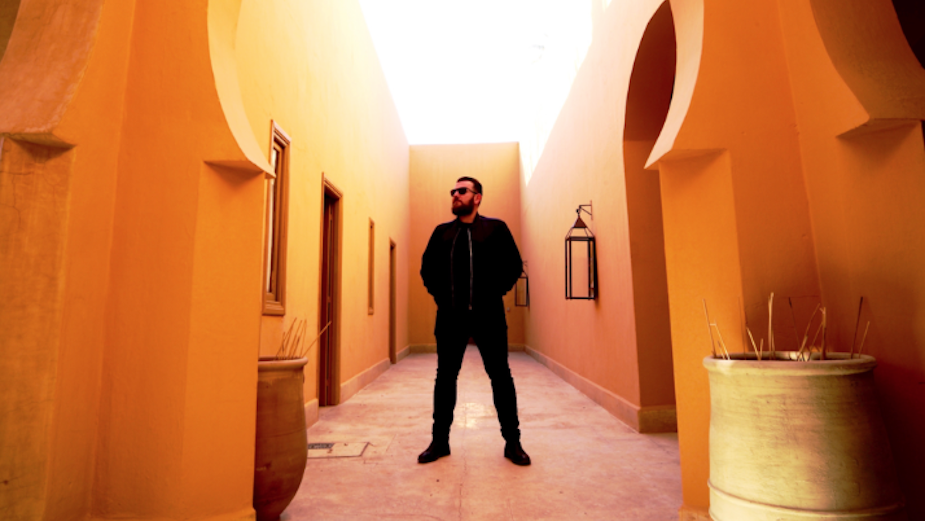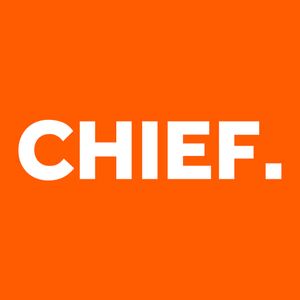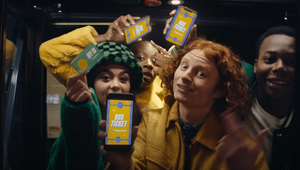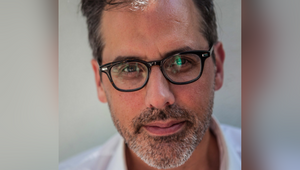
The Directors: Nate Camponi

Nate's life long love of cinema has given him an unnerving quality to make any script come to life.
From telling the stories of some of our most storied brands; including Jack Daniels, Johnnie Walker, Nike to crafting award-winning short films and music videos. His work has been recognised at Creative Circle and Cannes Lions.
Name: Nate Camponi
Location: London
Repped by/in: CHIEF. / United Kingdom, Picture North / United States, 2029 / Romania
Awards: Creative Circle, Cannes Lions
Q > What elements of a script sets one apart from the other and what sort of scripts get you excited to shoot them?
Nate > I LOVE filmmaking so I don’t think there’s just one genre of script that interests me specifically, but I’m trying to shift myself into a place where I can do a lot more cinematic storytelling, as this is where my passion is. I’m always looking for a script with a strong main character or a story set in an intriguing world that I can play with. The ones that get me really excited have enough scope for me to dabble in some world-building, so whether that’s an elevated documentary for a luxury drinks brand or something more stylised and tongue-in-cheek, I think I’ve got a strong visual sense that seems to tie all those genres together into a style.
I’ve dabbled in different styles of work over the years, but I feel like I’m refining my focus now. I’ve got a lot left to explore, so in a way, I’ve only just started on this new chapter in my career.
Q > How do you approach creating a treatment for a spot?
Nate > I’ve always been very hands-on and continue to be. Putting the treatment together is where I sweat through the process of fully understanding every nook and cranny of the creative and truly figure out what I can bring to it. I try to take the reader on a journey both verbally and visually and get it as close to how I want the film to be, as possible.
When I read a script, I tend to know exactly how I want to do it straight away. But from then on, my head explodes into a million pieces and I spend the next day or so wading through a brain dump of random notes I’ve made on my phone and thumbnail sketches I’ve scribbled in pads. I convince myself these will be really useful later, but that seems to be how I exorcise all the nonsense and I eventually come back to that first initial gut feeling - proof that you should just trust your instincts to begin with! Once I’ve got through that, it tends to come together really quickly and rarely changes.
I wish I was someone who was up like a shot at 5am raring to go, but I’m not. I write better at night when everything’s quiet and the phone stops ringing. There’s something mysterious that I like about the evening where it feels like you can disappear into whatever the world of the script is.
Q > If the script is for a brand that you're not familiar with / don’t have a big affinity with or a market you're new to, how important is it for you to do research and understand that strategic and contextual side of the ad? If it’s important to you, how do you do it?
Nate > It’s important for me to understand who I’m working with, yeah, because that will not only dictate how I engage with the agency and client during production, but it’s a lot easier to push the boundaries of the creative and dare them to take risks if you understand the brand and the sector it exists in.
My dad has worked in advertising on agency side my whole life so I’ve always been quite comfortable working with brands and seeing the bigger picture. Advertising is in my blood, you could say, so I totally respect the value of having that understanding.
Q > For you, what is the most important working relationship for a director to have with another person in making an ad? And why?
Nate > A director really has one job and that is, to have a point of view. You have a strong opinion on how something should be made and communicate that to people that surround you to help you make it. So, the most important thing to be is accessible to everyone. You have to be open and available to everybody across the whole job - the producer, the DP, the cast, the production designer, costume, make up, editor - anything that’s going in front of the camera, you need to be there to help shape. You’ve got to be present. It’s basically my job to get everybody excited about making the film and if you’re hiding away in your director’s ivory tower, it can be difficult for people to get on that journey with you. It’s about getting people excited.
Q > What type of work are you most passionate about - is there a particular genre or subject matter or style you are most drawn to?
Nate > I like a strong central character at the heart of a concept, whatever the genre. I find that I’m at my best when I can use my imagination to build cinematic worlds, and that’s something I’d love to explore a lot more in future. I think that’s why I enjoy shooting in the States and Asia so much, because there’s a mystery to the locations. They’re not familiar to me. You suddenly get hit with all this crazy stimulus and you see things through a different eye. I’m interested in transporting the viewer to a slightly different, elevated world, even if that world is ultimately rooted in reality. If I can go somewhere and feel a bit lost, I find that I have an easier time doing that.
Q > What misconception about you or your work do you most often encounter and why is it wrong?
Nate > I don’t actually know if this is a misconception about me or if it’s my own paranoia, but I think people assume I’m a bit of a ‘Jack-of-all-trades’ because I’m not ‘the comedy guy’ or ‘the fashion guy’. I’ve done a bit of it all, just in my own way. I was lucky enough to start my career incredibly early, around the time of the last financial crash, so there were a lot of wildly varied scripts kicking around with pretty shitty budgets, so at the beginning of my career I became known as someone who was quite decent at directing a lot of different styles but not someone who had a specific focus. The huge upside to this of course is the sheer amount of experience I built shooting weird and wonderful things all over the world and there are now very few situations where I’m intimidated. As I mentioned before, I’m now focusing on taking all my experience and throwing it into shooting highly cinematic films where I feel the most comfortable, so maybe if that misconception was true, I’m now finding a way to smash it.
Q > Have you ever worked with a cost consultant and if so how have your experiences been?
Nate > I know that they’ve been present on plenty of pitches I’ve been involved in but I can count on one hand how many personal interactions I’ve had with them. I generally only hear there’s a cost consultant on a job when they’re causing trouble and telling us how much film stock or extras we can have. You’d get a much juicier answer out of one of my producers, I’m sure…
Q > What’s the craziest problem you’ve come across in the course of a production – and how did you solve it?
Nate > Ha! There’s one story, but I can’t name any names. I probably shouldn’t tell it… We were shooting abroad for four days and on day one, literally an hour or so into the shoot, the agency says “We’ve got a bit of a problem, Clearcast signed off the wrong script.” So now we’re shooting a four day commercial, that was fairly big, from a script that we don’t actually know whether we can use. We ended up shooting about four alternate lines of dialogue for every line of dialogue in the script - and it was pretty wall to wall - to make sure we had enough options for the edit. That plunged us into 3-am finishes every night. Honestly, it was one of the most painfully mind boggling experiences of my entire career, keeping track of all those extra lines and performances across the 4 days. Then we went for the world’s most bizarrely epic wrap party on day four at 3am, crammed in a few hours of boozing and still made the airport… So it has a happy ending, although I did have to leave most of my clothes in the hotel room to not miss the 9am flight…
Q > How do you strike the balance between being open/collaborative with the agency and brand client while also protecting the idea?
Nate > That’s probably one of the trickiest things to learn because ultimately, I’m there to shoot a film for a brand and that comes with restrictions that sometimes clash with your artistic side. It’s a shame when some of your ideas don’t connect, but it goes all the way back to clear communication in the beginning - that’s why I like to make the treatment as close to the final vision as I can, so we’ve got a solid roadmap. I also really enjoy working with creative teams. It shouldn’t ever become Us vs Them. I actually get frustrated when the system keeps us apart, sometimes.
You have to adjust your collaboration to best suit the job, but I find being open to their ideas and being available to talk things out usually works best. Also not being afraid to throw your ideas away if they’re not working for everyone. We all have days where you wake up screaming ‘I’m an artist, don’t you get it?! What’s wrong with you all?!’ but you’ve got to stick the ego back in the box and understand there’s a bigger picture - and there’s always a better idea. The more communication there is, the better the film is, usually.
Q > What are your thoughts on opening up the production world to a more diverse pool of talent? Are you open to mentoring and apprenticeships on set?
Nate > Absolutely. I was mentored by tonnes of great people coming up. Other directors, DOPs, producers, creative teams, agencies. I have Chief to thank for that as it’s a very open creative environment. I think it’s the most valuable way to come up and it’s always the first thing I tell new runners or PAs. Running can be tough because you can get bollocked for getting someone’s tea wrong but it’s an amazing way to learn by just being immersed in it.
And in terms of a more diverse pool of talent, I think that’s imperative. No one can argue with that. The world of film production is ultimately about storytelling and unique, diverse, individual experiences keep it fresh.
Q > How do you feel the pandemic is going to influence the way you work into the longer term? Have you picked up new habits that you feel will stick around for a long time?
Nate > I don’t know about new habits, but it definitely got me back in touch with my raw creativity. I wrote two features, got back into photography and got excited again in a way I can’t describe.
I think we can all agree that Zoom has been both an incredible tool and a fucking annoyance in equal measures! Haha. When else would someone think it’s cool to stick 20 full-on meetings a day in your diary? It made me respect the energy of an in-person meeting more than I ever have, that’s for sure.
But, on a much more positive note, I did a remote shoot with the States through my brilliant US rep, Picture North, in July. It went really smoothly and proves that we can work through almost anything. When I got back into on-set shooting after the first lockdown lifted, Chief were set up to do it almost immediately. The speed at which production adapts to new circumstances is amazing, but it doesn’t surprise me at all. We’re known for being a highly adaptive industry and I love being a part of that. Seeing everyone pull together to make it happen whether it’s on Zoom or in person, has been incredible. I’m raring to go! Bring it on.
Q > Your work is now presented in so many different formats - to what extent do you keep each in mind while you're working (and, equally, to what degree is it possible to do so)?
Nate > It’s always in my mind now because I can’t remember the last time I shot a job with only one required format. You have to find a way to make it work, but inevitably if you try to do everything at once something will be compromised - usually the framing of a shot or the execution of an idea - and that’s never easy to swallow. Again, it’s about communication. If the different formats are outlined early enough you can make a plan and get the best out of it, but I find that people tend to just go into a ‘content craze’ and suddenly start inventing new shots for Snapchat, Insta and TikTok, which ultimately breaks focus from making the main film. There is a clash between filmmaking on a larger scale and the immediacy of social media, for sure, but both are super exciting and I just want to get the best out of everything I do. So, I suppose I get frustrated because I love it. Haha.
Q > What’s your relationship with new technology and, if at all, how do you incorporate future-facing tech into your work (e.g. virtual production, interactive storytelling, AI / data-driven visuals etc)?
Nate > I love new technology and I hope to see more and more scripts that allow me to experiment with new cameras, drones, cranes, AR, AI - anything. There is one side of me that loves traditional cameras and lenses and another side that doesn’t care what we use as long as it’s right for the story. Cameras getting smaller and easier to throw around is a lot of fun. Virtual production keeps me optimistic that we can keep shooting through tricky times, but I hope it doesn’t replace travelling as interaction with new people is such an important part of the job. Post-wise, I’ve been using frame.io a lot in the past couple of years and I don’t know how I’d function without it now - especially when working with the US - it means I can keep close on edits.
Q > Which pieces of work do you feel really show off what you do best – and why?
Jack Daniels - Firefighters
I did this spot with Picture North in Chicago. I think it’s a great example of crafting a piece of cinematic documentary using real people as heroes in their own movie. We’re shooting real fire drills and real distilling processes but with a filmic polish. Shooting the fire was a lot of fun. Everyone we used worked at the distillery in Lynchburg and really got into the filmmaking. Great memories from this one. I’ll never forget the words, ‘I’ve got some diesel in my truck….’ If you know, you know…
Johnnie Walker - 18 Years
This is a brilliant example of what you can achieve with a really small crew and a few days of freedom. We had a day with Jim, the master blender at Johnnie Walker, to get his audio and the visual moments with him, then we had a couple of days driving around the highlands, spotting shots, jumping out and shooting. Again, great memories and a great film as a result.
Hyundai - Petrolheads
I’d love to shoot more films like this one - it was crazy. Three days in Wales in the freezing cold ragging a punchy little car around the hills. The end sequence was shot at a racetrack on Anglesey on one of the coldest evenings I can remember. But it’s got everything I love - a tongue-in-cheek idea, an opportunity for world-building, some big shots, some SFX, VFX and weirdness. It’s a surreal spot, but I’m pretty fond of it.
Nokia - If Only
I really liked making this one. It blends the cinematic sensibility I really enjoy with a kind of elevated documentary style. Again, most of the people in this film are real responders - albeit with some previous on-camera experience. It was a challenging budget so we picked our ‘big shots’ carefully and designed the close-ups cleverly so we could be as resourceful as possible with our people and props.













